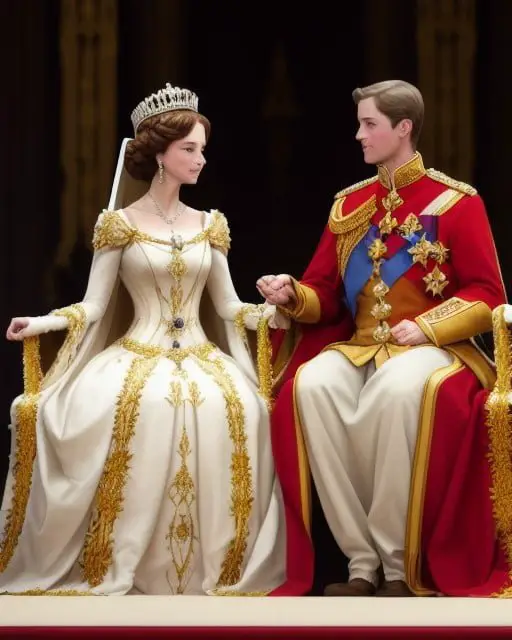Coronation is the ceremony of crowning a monarch, which has been practiced for centuries by various cultures across the world. The history of coronation is rich and fascinating, marked by its customs, traditions, and significance. From ancient times to modern-day, coronation ceremonies represent the pinnacle of power and the beginning of a new era for the monarch and their subjects. In this article, we will delve into the enthralling journey of coronation and explore the customs, traditions, and significance of this timeless ceremony.
The Enthralling History of Coronation: From Ancient Times to Modern Day
Coronation ceremonies date back to ancient times when crowning a monarch was seen as a divine right. The earliest recorded coronation in history is that of Narmer, the first Pharaoh of Egypt, in 3100 BCE. The ancient Egyptians believed that the coronation of their pharaohs was a sacred event that marked the monarch’s divine right to rule over the land and its people.
Throughout history, coronation ceremonies evolved to reflect the customs and beliefs of the culture and time in which they were held. In medieval Europe, the coronation of kings and queens was a highly elaborate affair, with religious and secular ceremonies that often lasted for days. The crowning of monarchs during this period was seen as a sacred event that represented the transfer of power from God to the monarch.
In modern times, coronation ceremonies have become more streamlined and less religious. For example, the coronation of Queen Elizabeth II in 1953 was a simpler affair than that of her predecessors, with less emphasis on the religious aspects of the ceremony. Modern-day coronations now focus more on the symbolic significance of the ceremony rather than its religious undertones.
The recent Coronation of King Charles is one example.
Delving into the Customs, Traditions, and Significance of Coronation Ceremonies
Coronation ceremonies are steeped in customs and traditions that have been passed down through the centuries. One such tradition is the anointing of the monarch with holy oil, which is believed to symbolize the monarch’s divine right to rule. In medieval times, the anointing was often performed by the Archbishop of Canterbury, who would anoint the king or queen’s head, hands, and chest with oil.
Another important aspect of coronation ceremonies is the crowning of the monarch. The crown is a symbol of the monarch’s power and authority and is often made of gold and precious stones. In some cultures, the crown is believed to have magical powers that protect the monarch from harm.
Throughout history, coronation ceremonies have held great significance for the people of the kingdom. They represent a new beginning, a time of hope and optimism for the future. The ceremony also serves as a reminder of the monarch’s duty and responsibility to their subjects, to rule with justice and fairness.
In conclusion, the history of coronation ceremonies is rich and fascinating, and the customs and traditions associated with them are deeply ingrained in the cultures that practice them. From ancient times to modern-day, the coronation ceremony has represented the pinnacle of power and the beginning of a new era for the monarch and their subjects. The significance of the ceremony is felt not only by those present but by all who look to the monarch for guidance and leadership.


